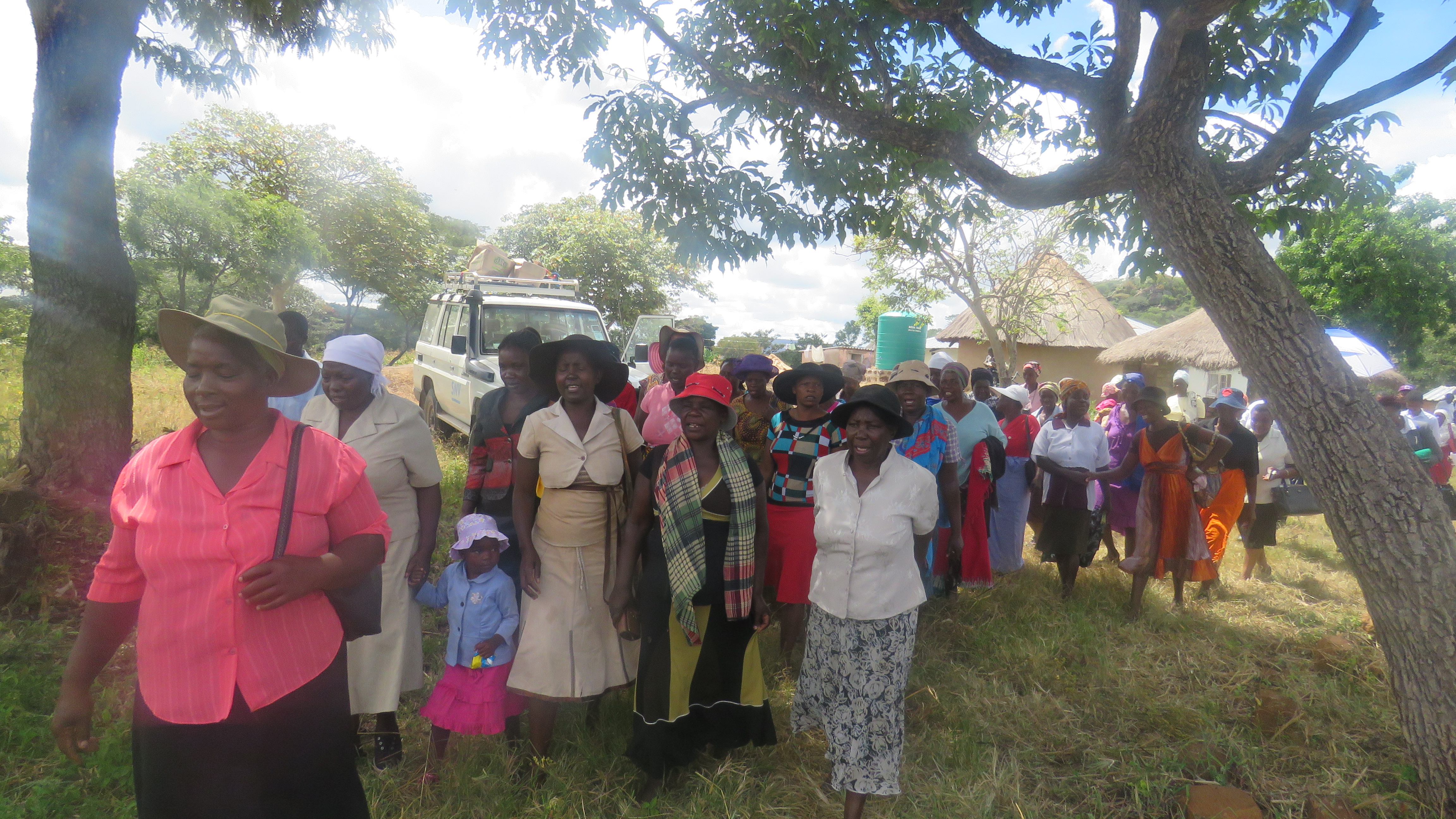Zimbabwean women farmers on their way to financial freedom
Date:
The Reserve Bank in Murehwa, Zimbabwe assured Zimbabwean women farmers (participating in a UN Women Zimbabwe supported initiative to improve women’s incomes) that they will receive financial support to up-scale production and access markets is high on the Central Bank’s agenda.
The Deputy Governor of the Reserve Bank, Dr Charity Dhliwayo, told the women, “The Reserve Bank will soon establish a Women Empowerment Fund to meet the financial needs of lower-income earning women farmers.” As part of the implementation of the Reserve Bank’s Financial Inclusion Strategy (2016-2020), the visit to Murehwa, is part of a series of engagements which bank officials will hold throughout the country to talk to women to understand the barriers that might inhibit their access to the proposed Fund.
UN Women Zimbabwe has partnered with SNV in Murehwa (which is about 100 kilometres from the capital city of Harare) to improve women farmers’ productivity and add value to their produce. This union will link the women to markets and provide them with relevant information to access financial support. This three-prong approach to creating sustainable and viable income sources for the women has also created partnerships with the private sector companies and with micro-finance institutions.

Women farmers participating in the UN Women-SNV project on their way to hold discussions with Reserve Bank officials |Photo credit: SNV Zimbabwe
More than 350 registered women farmers in Murehwa area have received inputs and loans through a partnership with Steward Bank and Metropolitan Bank to engage in poultry farming as a small enterprise. Some of the women have opened savings accounts and have bank cards enabling them to purchase goods during the current liquidity crisis. Throughout this partnership, UN Women seeks to influence the banks to design women-friendly products for credit.
The Deputy Governor’s visit was eye-opening as it gave her insight into the business ventures run by rural women. It also created an understanding of the current impediments to the financial inclusion of rural women, as called for in the country’s ‘Financial Inclusion Strategy’.
UN Women provided a gender analysis and inputs into the Strategy which seeks to improve the access to finances in the country through a coordinated approach. The Strategy includes a section on actions to be taken to improve and strengthen women’s access to finances, especially rural women who are among those identified as vulnerable and a minority group.
The Murehwa initiative, supported through the Joint Programme for Gender Equality, is one example of how actions in the Strategy can be implemented at the local level. Dr Dhliwayo told the women that their experiences with Steward Bank would provide the Central Bank with one model to look at for developing a programme to enable the financial system to function more effectively to serve the financial needs of low income groups like women farmers.